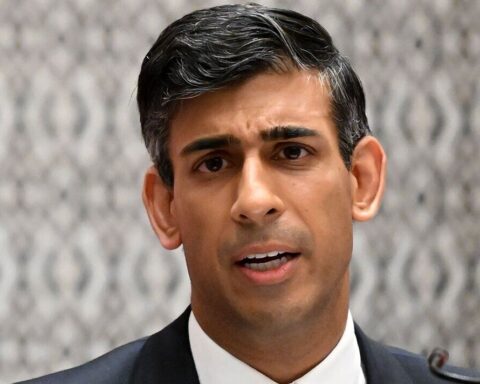LONDON (Parliament Politics Magazine) – The Treasury minister believes that a windfall tax on gas and oil companies cannot be ruled out by the government to assist people in coping with growing living costs.
The policy which the opposition parties proposed, would impose a one-time fee on corporate profits, with proceeds going to help hard-hit people struggling with rising expenses.
Simon Clarke stated that he was not “philosophically attracted” to the move.
However, he stated that the administration would always behave pragmatically.
They were looking at the problem with great urgency and focus, and it was against that background that people could be reassured the government was on the matter, the Treasury chief secretary told BBC Radio 4’s Today programme.
They were not going to rush into action, however given the gravity of the issue, they were also not just going to sit there and not provide the necessary support, he added.
Liberal Democrats, Labour and the Scottish National Party have all urged for a windfall tax on oil and gas companies, which have enjoyed record profits since the pandemic ended.
The parties said the funds might be used to help those who are most affected by the growing living cost, which has seen food, fuel, and energy prices skyrocket, as well as inflation reaching a 40-year high.
The government initially opposed the plan, claiming that it would discourage energy corporations from investing in the UK.
However, as expenses climb – and another energy price hike is looming in the autumn – Downing Street’s rhetoric has gone soft, with both the PM and the chancellor leaving the proposal on the table.
Several Conservative backbenchers have also expressed support for a windfall tax, putting more pressure on the government to take action. Former Treasury minister Jesse Norman told Today that it was necessary in these exceptional times.
‘Targeted action’
Mr Clarke, however, refused to say if the measure would be implemented, adding that they wanted to make sure that when they did act, they acted on the facts, understanding the problem in all of its dimensions, and most importantly, that they didn’t inhibit investment in North Sea oil and gas.
Before comparing the government’s efforts in the pandemic to those during World War II, he emphasised initiatives already in place to help individuals with growing costs, such as the £150 council tax rebate.
Just as Winston Churchill’s government had no choice but to use exceptional measures for dealing with World War II in the 1940s, they had had to do more than ordinary things when peace prevailed, which were a most dramatic string of events to ever have an impact on the country, Mr Clarke said.
It was in that light that they addressed the issues that they would face coming autumn, he added.
He went on to say that they wanted to make sure that whatever action they took was focused and effective, however, in the face of such an exceptional scenario, they were not going to rule [a windfall tax] out on principle.






